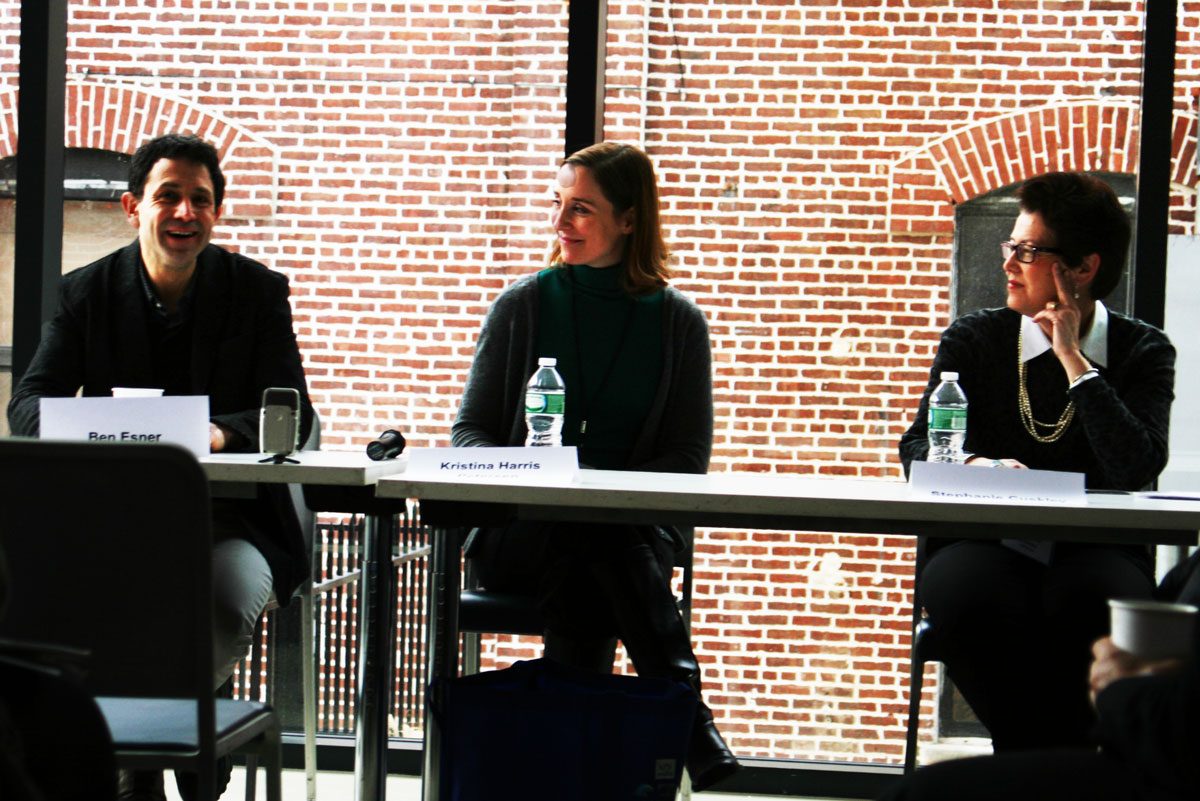Technology jobs are the way to succeed in today’s economy, yet that work isn’t open to people who lack a deeper understanding of technology.
Developing those skills can mean breaking through existing barriers. For women, the case is compelling. While the average American woman makes just 76 cents to a man’s dollar, when it comes to IT jobs, women earn 92 percent of what men earn, said Stephanie Cluskey, CEO of NPower.
So at Technically Brooklyn’s Diversity In/Tech event on Tuesday, we asked a panel to discuss what’s being done to get underrepresented youth into those jobs, both on the public and nonprofit side.
The panel was moderated by Daniella Romano, a Vice-President at the Brooklyn Navy Yard Development Corporation, and featured Cluskey, Ben Esner, Director K-12 STEM Education at the former NYU-Poly (we covered it here) and Kristina Harris-Petersen, creator of Math Warriors (we wrote about one of the actors here).
Listen to the whole hour-long conversation here:
Some takeaways from a conversation that wove back and forth between the needs of workforce development for people already looking for work and the pipeline into the tech economy:
- Esner faulted policy makers whose rhetoric often aligns with STEM ed goals but whose priorities don’t. For example, there is no established curriculum for a computer science teacher in the State of New York, he told the audience. Further, budgets are not putting funds into technology and staff training. There is more attention paid than actual change to education, he said.
- Of teaching any discipline, Esner said the secret is to care about what you’re teaching and, over time, prove you care about students.
- Cluskey stated that public schools simply don’t have many teachers with computer science backgrounds.
- Esner also raised the point that as STEM increases in schools, students aren’t tracked into careers that may or may not be right for them. The point is to give students exposure and opportunities without writing the game plan for them.
- Harris Petersen spoke of her experience studying in Britain, where she saw that students really needed to decide what direction they wanted to go in life by 16. Though she came to the event for her work acting and directing, Harris Petersen is trained as a biochemist. She said, “If I had to make that decision to be a scientist at 16, I’m not sure I would have had the confidence.”
- Access to computers and Internet seems to have greatly improved, but 3D printers and arduinos are the new divide, according to more than one panelist, with echoes from the audience.
- Providing role models to young people that they can admire is important. Harris Petersen pointed out that it’s hard to find characters in movies or on TV that are good at science and math and are still sort of cool.
- All three panelists agreed arts won’t be lost in a new STEM focus, particularly as ‘STEAM’ grows in popularity as a concept.
[slideshow_deploy id=’14828′]
Join our growing Slack community
Join 5,000 tech professionals and entrepreneurs in our community Slack today!
Donate to the Journalism Fund
Your support powers our independent journalism. Unlike most business-media outlets, we don’t have a paywall. Instead, we count on your personal and organizational contributions.
